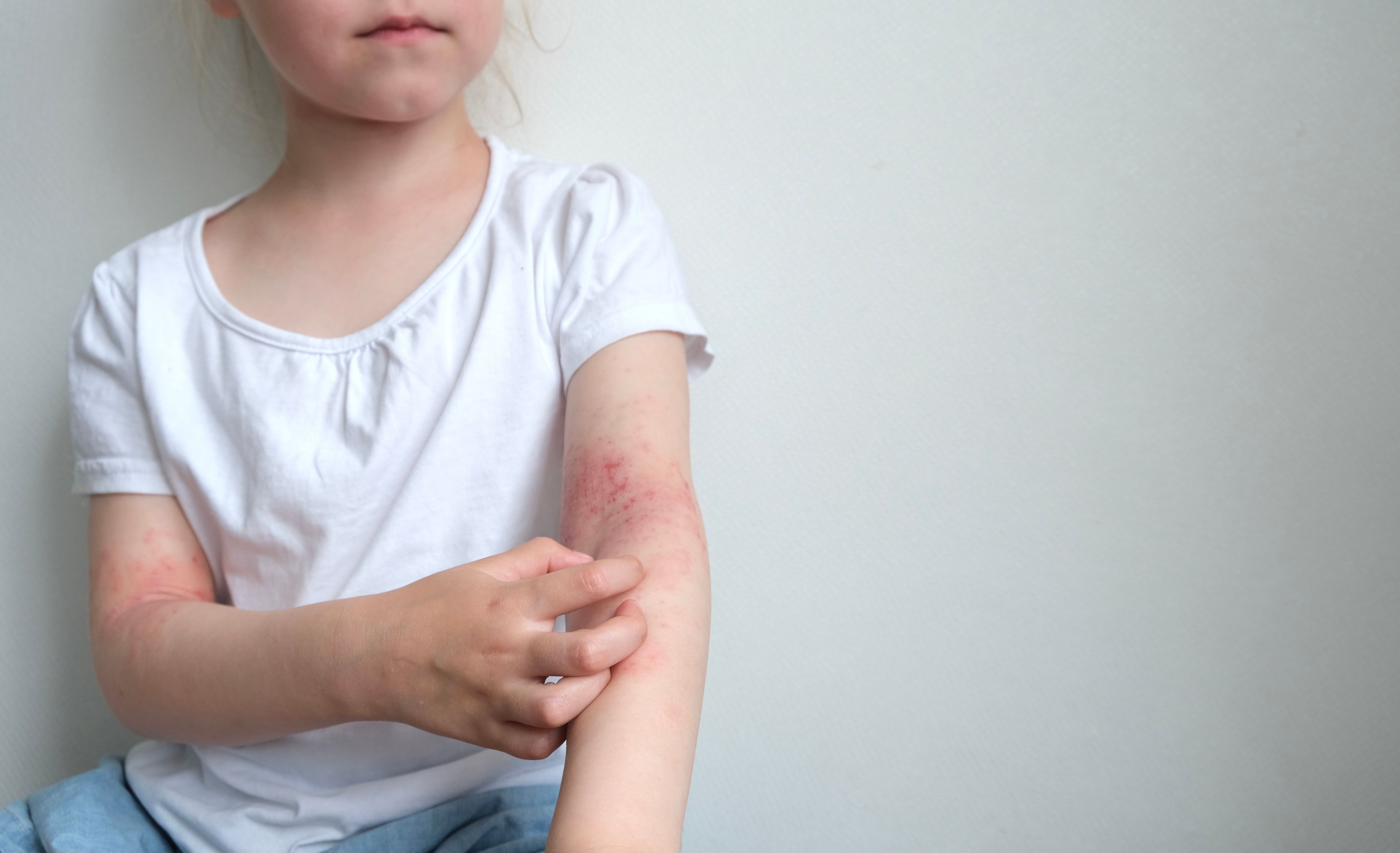- Center on Health Equity & Access
- Clinical
- Health Care Cost
- Health Care Delivery
- Insurance
- Policy
- Technology
- Value-Based Care
Study: Educational Interventions Substantially Reduce AD Severity
Educational interventions for patients, including both in-person and online methods, significantly reduced atopic dermatitis (AD) severity.
Educational interventions were shown to have significant impacts on reducing atopic dermatitis (AD) severity, according to a study published in the Archives of Dermatological Research.1
Although the combination of topical and systemic treatments is the standard for pharmacological interventions, the researchers explained that patient education used in parallel with these treatments has worked as a foundational component of treatment regimens.
Previous studies determined that educational interventions have a direct impact on reducing disease severity for pediatric patients with AD.2 However, the researchers found that these mostly focused on comparing in-person interventions.1 Because of the large rise in telehealth usage that emerged from the COVID-19 pandemic, they conducted a systematic literature review to analyze the effect of various educational modalities, namely online programming and in-person interventions, on AD severity.
Pediatric patient with atopic dermatitis | Image Credit: Марина Терехова - stock.adobe.com

The researchers searched various databases for articles that analyzed educational interventions for patients with AD and/or caregivers of patients living with AD published up to April 4, 2023. After the initial search, the researchers removed duplicate entries. Then, 2 authors independently checked the remaining articles' abstracts and conducted full-text reviews. From the eligible studies, the researchers extracted various data, including the study design, patient characteristics, and key findings.
Multiple scales were used across the studies to evaluate the researchers’ outcome of interest, namely SCORing Atopic Dermatitis (SCORAD), Patient Oriented Eczema Measure (POEM), Dermatology Life Quality Index (DLQI), and Eczema Area and Severity Index (EASI). SCORAD is used to quantify patients’ disease severity, while POEM is an AD-specific severity scale with a focus on subjective patient- and/or caregiver-reported measures. EASI measures AD severity, and DLQI is used to assess the extent of disease severity on patients' quality of life (QOL).
Consequently, the researchers analyzed 18 studies, representing a pool of 3234 study participants, with 1597 in the active arm. The age of study participants ranged from infancy to adulthood, with most studies focusing on pediatric populations (mean age, 7.15; range, 2.40-34.53 years). They noted that the majority of studies were randomized clinical trials, primarily from North America and Western Europe.
Also, most interventions focused on patient and/or caregiver education about self-care techniques, disease management, comprehensive understanding of the disease process, and trigger avoidance. However, some studies incorporated psychological support or group discussions “to foster emotional well-being and collective problem-solving.”
To start, 12 studies used the SCORAD index as their primary outcome measure. Across these studies, a significant reduction in the SCORAD index was found in the intervention group (standard mean difference [SMD], 0.65; 95% CI, 0.45-0.86; P < .00001), indicating reduced AD severity; the researchers also observed high heterogeneity among the studies (I2 = 81%).
Additionally, 7 studies assessed QOL. The meta-analysis of these studies resulted in a significant pooled SMD of 0.36 (95% CI, 0.18-0.54; P = .0002), with high heterogeneity among the studies (I2 = 54%). Also, 4 studies used the POEM score as the outcome measure. The researchers reported a significant reduction in the POEM score in the intervention group (SMD, 0.28; 95% CI, 0.07-0.49; P = .009), indicating reduced AD severity; they observed moderate heterogeneity between these studies (I2 = 47%).
Lastly, 3 studies used EASI as their outcome measurement, all of which reported significant EASI score reductions in the intervention group (SMD, 0.80; 95% CI, 0.54-1.06; P < .00001); however, there was low heterogeneity between the studies (I2 = 0%).
“Overall, educational interventions were shown to have significant impacts on reducing AD severity as per the SCORAD, DLQI/QoL, POEM, and EASI measurements,” the authors wrote. “The studies which focused on interventions with learning modalities including practical skills and collaborative learning had the greatest effect.”
Because of the variety of scales used within the studies, the researchers converted the results from each study to a common effect size metric, which they used to compare pediatric populations with adult populations. The researchers' overall pooled analyses showed that there was an equal improvement in adult educational interventions (SMD, 0.64; 95% CI, 0.37-0.90) compared with that of pediatric populations (SMD, 0.66; 95% CI, 0.43-0.89). This suggests that targeted educational programs in understudied adult populations can be just as effective as pediatric-focused ones.
The researchers acknowledged their limitations, one being potential publication bias due to the small number of studies analyzed. Also, most educational interventions in the literature focused on the pediatric population. Consequently, they were unable to perform a high-powered analysis on adult AD interventions. Based on their limitations, the researchers made suggestions for future research.
“Future studies on the impact of educational interventions should aim to incorporate various methodologies to better stimulate individual learning preferences,” the authors concluded. “Research in adult cohorts and the effectiveness of virtual interventions should be further investigated.”
References
1. Andrade LF, Abdi P, Mashoudy KD, et al. Effectiveness of atopic dermatitis patient education programs – a systematic review and meta-analysis. Arch Dermatol Res. 2024;316:135. doi:10.1007/s00403-024-02871-y
2. Zhao M, Liang Y, Shen C, Wang Y, Ma L, Ma X. Patient education programs in pediatric atopic dermatitis: a systematic review of randomized controlled trials and meta-analysis. Dermatol Ther (Heidelb). 2020;10(3):449-464. doi:10.1007/s13555-020-00365-z
